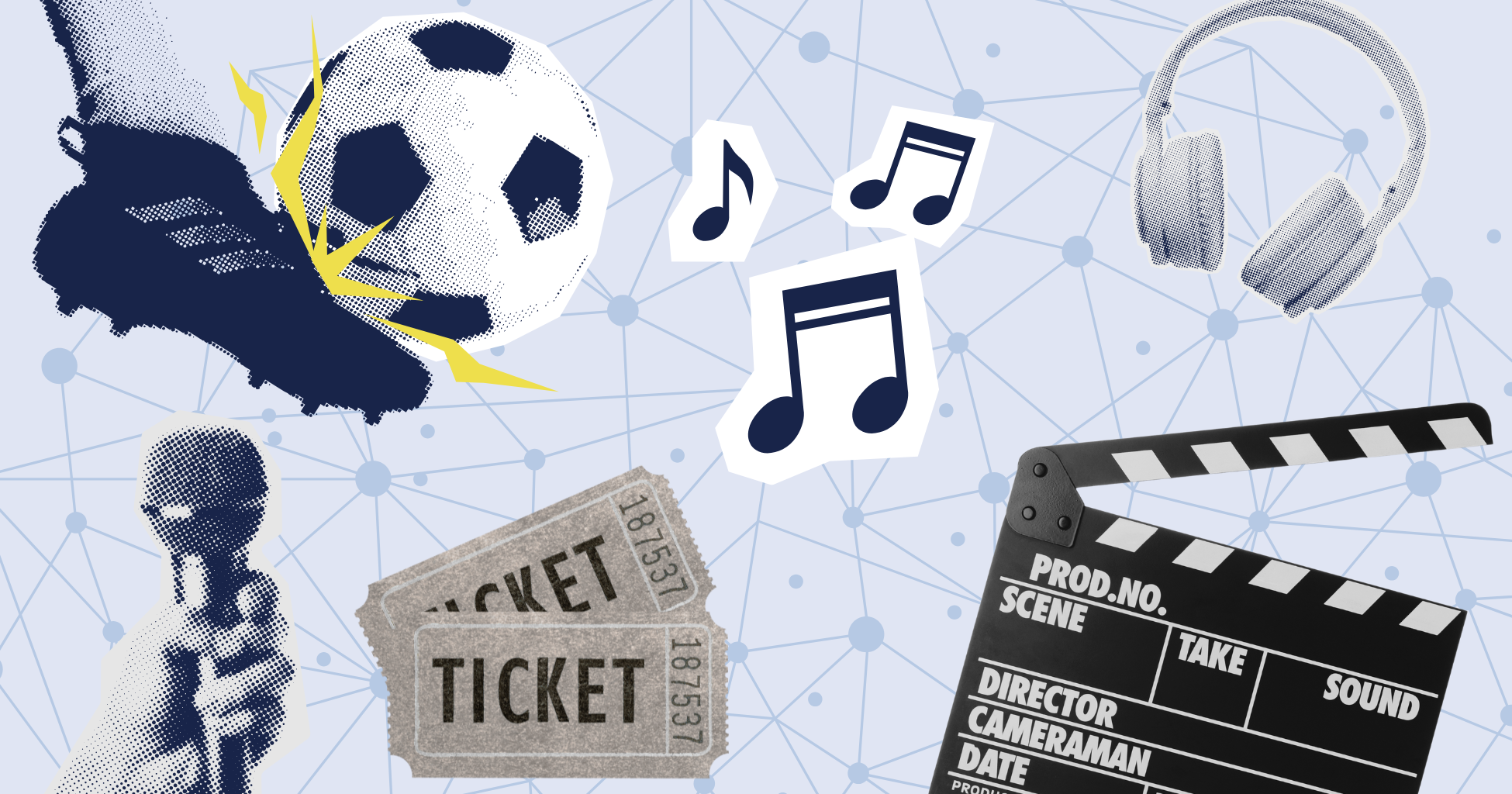.png)
Kogod School of Business
This summer, a new song by an upstart band called The Velvet Sundown generated 1 million streams on Spotify. Starting off with acoustic guitar notes leading into the lyrics, “Dust on the wind,” the track (by that same name) seemed unremarkable enough. That is, unless you consider that the entire work was produced by artificial intelligence.
That hit summer single was a sobering reminder of the upheaval AI poses for the music and entertainment industry, with generative tools threatening disruption to the very essence of what constitutes a creative production. The promise of optimization and efficiency has a different ring in a soundproof recording studio than it might in a corporate boardroom.
While there are plenty of ways the explosion of AI could jumpstart distribution platforms of creatives’ work and open new revenue opportunities for companies, this emerging technology poses an equal (or greater) threat to the essence of industries built on human connection, thought, and skill.
Here are some of the top pros and cons AI holds for the entertainment sector.
Pros
Cutting production time and budget
AI can streamline some studio operations, from evaluating scripts to outsourcing some less core functions. That might include operational tasks like drafting contracts or more limited on-screen assists like de-aging celebrities, a recent report from Deloitte found.In the music industry, generative tech has the potential to significantly reduce the time composition, mixing, and mastering can take.
In some cases, that might offer time and cost efficiencies—which may be a good or bad thing, depending on your perspective.
Music Personalization
We all like a playlist that hits the spot, and AI can increasingly help you find the perfect one, whether you’re working out, on a commute, or winding down after a long day.That’s not just good for hitting a groove while on your run or at your desk.
Spotify has credited its AI-generated “daylists”—curated playlists to match listening habits over the course of the day—as one of the innovations that’s increased engagement among subscribers and cut down on subscription cancellations among those users.
“We're finding more ways to drive up the engagement and driving down the churn,” Spotify CEO Daniel Ek said on the company’s third-quarter 2024 earnings call. “And I think this again showcases that we keep adding more and more value to the platform across the board, and AI is one of those ways.”
Streaming platforms have similarly rolled out AI-driven content recommendation tools to keep users engaged.
Capturing Trends, Talent, and Royalties
There’s also a variety of new tools to help agencies operate more efficiently, from talent-scouting platforms to new tools to spot when (and where) a track might be going viral—not to mention technology that can spot music copyright infringement that might have otherwise led to unclaimed royalties.
Cons
Intellectual Property Concerns
Front of mind for creatives are the intellectual property concerns posed by AI, which pose concerns on multiple fronts. There are overt IP violations, such as the AI-facilitated theft, reuse, or repurposing of another person’s work.
And, there are the inflection points over image and likeness that roiled Hollywood during the recent strikes—a product of technology that can convincingly replicate a well-known actor’s voice and appearance.
Devaluation of Sacred Creative Work
And then there’s the human aspect of the work itself: Part of what makes a song, show, or movie incredible to experience is the humanity involved: it’s a person on that stage or set.And AI has threatened “seismic shifts” to those industries, entertainment industry veteran Linda Bloss-Baum, professional lecturer at American University’s Kogod School of Business, wrote in a recent opinion piece in the Observer, setting up what she sees as a “pivotal crossroads” between human and machine.
“AI can be a valuable tool for artists, provided it is used thoughtfully,” said Bloss-Baum, a veteran of the DC-based digital music collective SoundExchange, Capitol Hill, and former content lead at Time Warner, Warner Music Group, and NBC Universal/Universal Music Group.
However?
The fundamentals of creativity remain rooted in human experience, and these elements are essential for producing authentic and resonant art.”

Linda Bloss-Baum
Kogod Professor and Business and Entertainment Program Director
As a faculty member teaching courses in Kogod’s undergraduate Business and Entertainment program, Bloss-Baum sees her mission today as critical to preparing students to gain both the technical fluency in AI that they’ll need to leverage and navigate it over the course of their careers.
Kogod’s BAE program focuses on the “business” behind “show business,” that is, the $717 billion entertainment and media industry in the US.
The only program of its kind in the DC area, students gain a solid foundation in core business disciplines from accounting to finance, management, marketing, and strategy, with a focus on how these disciplines relate to the entertainment industry (spanning music, film, sports, and television).
Alongside those core classes, students can choose specialization tracks, including agency, audio technology, film, marketing, music performance, or a self-designed specialization.
97 percent of Kogod BAE students participate in an internship, and graduate to top employers like Amazon, NBC’s Page Program, CAA, SONY, WMG, and UTA. And all of the programs students work together to help put on Kogod’s annual concert! Past musical guests have been Flo Rida and Flo Millie.
